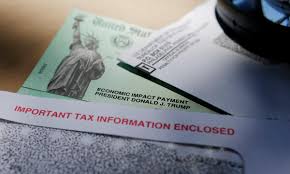By Megan Henney, Fox Business–
More than 1.3 million Americans filed for unemployment benefits last week, showing that many workers are still losing their jobs even as the labor market starts to recover from the coronavirus pandemic and related lockdown.
The latest jobless claims figures from the Labor Department, which covers the week ended July 4, pushes the number of job losses since the shutdown began to nearly 50 million — or roughly 31 percent of the nation’s workforce. Last week’s figure was revised down by 14,000 to 1.41 million.
Continuing claims, the number of people receiving benefits after an initial week of aid, fell by 698,000 to a little more than 18 million. The previous week’s total was revised down by 530,000. Economists surveyed by Refinitiv forecast 1.37 million new claims and 18.9 million continued claims.
The numbers remain at persistently elevated levels, even as every U.S. state eases restrictions on residents and allows businesses to reopen. It’s the 16th week in a row that jobless claims came in above 1 million; before the pandemic, the record high was 695,000 set in 1982.
Still, it’s the 14th consecutive weekly decline of Americans seeking jobless benefits since claims peaked at the end of March.
The report comes amid a spike in COVID-19 cases that has forced some states, including Arizona, California, Colorado, Florida, Michigan and Texas, to re-impose some stricter lockdown measures. The pullback has threatened to derail the economy’s nascent recovery from the virus-induced lockdown.
The government’s jobs report for June showed a better-than-expected gain of 4.8 million jobs last month and showed the unemployment rate dropped to 11.1 percent from 13.3 percent.
The renewed threat of another round of layoffs is emerging just weeks before the extra $600 a week in unemployment benefits, part of the $2.2 trillion CARES Act passed in March, is set to expire.
WHITE HOUSE MULLS MORE VIRUS RELIEF: HERE’S WHAT IT COULD INCLUDE
If the virus outbreak intensifies, forcing businesses to shut down again, economists have warned the consequences could be dire.
“I think a second wave would really undermine public confidence and might make for a significantly longer recovery and weaker recovery,” Federal Reserve Chairman Jerome Powell said at the end of May.
Congress and the White House are set to intensify talks on a fourth round of virus relief once the Senate returns from its two-week Independence Day recess on July 20. However, it’s still unclear what specific measures may be included in the package; some proposals still on the table include a second stimulus check, a back-to-work bonus, a payroll tax cut and liability protections for businesses.


Leave A Comment
You must be logged in to post a comment.